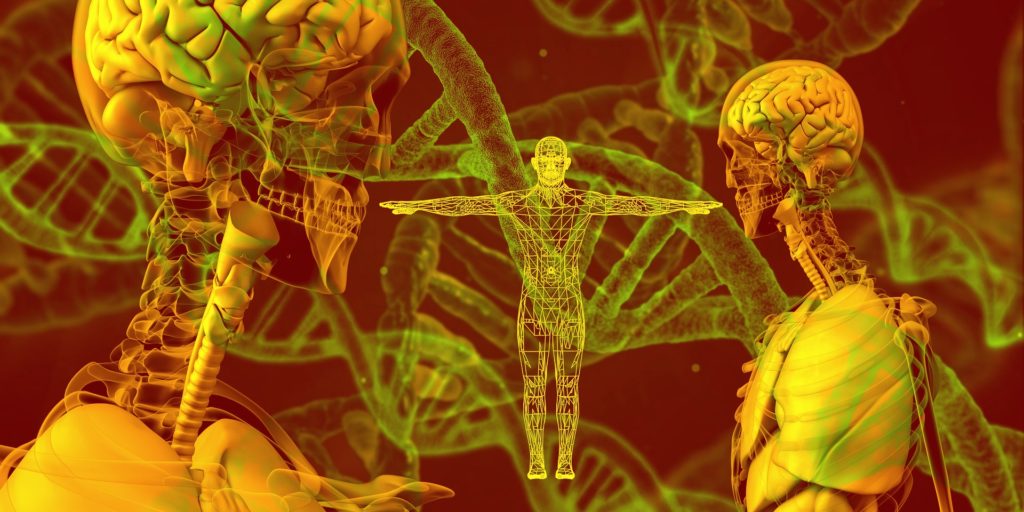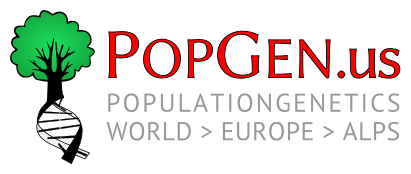In the last twenty years we have seen the rise of genetics as a tool for genealogists. First companies like FamilyTreeDNA (FTDNA), Sorenson Molecular Genealogy Foundation (SMGF) and Ancestry made it possible for private customers to buy DTC kits and initially get very low-res results for Y-DNA and mtDNA. The buildup of the matching databases and services increasingly was the main value of those companies and together with project pages/groups for research focused on haplogroups/geographic areas/surnames led to constant user growth in the 2000’s.

At the end of the 2000’s the introduction of affordable genome-SNP-chip tests gave the business a new income. Initially it started slowly with 23andMe (more known for the health reports then and now) and FTDNA and later Ancestry. From 2016 on Ancestry invested heavily in Marketing and also 23andMe did and both grew from one million of customers to now 20 and 12 millions. In 2016 also MyHeritage did enter the market and grew to 3 millions of customers. Meanwhile it seems FTDNA did rely on Y/mt-upgrades and also atDNA (FamilyFinder) tests mainly by word of mouth or “facilitated” by project administrators. Since SMGF was closed by 2015 and Ancestry also did put offline the Y/mt-matching services, FTDNA now has a big dominance for private Y-STR matching. In the atDNA matching with one million customers FTDNA seems irrelevant. Since 2013 also the Y and later the Whole Genome Sequencing rose in popularity by advanced genetic genealogists with the Big-Y from FTDNA, Y-Elite from Full Genomes Corporation (FGC) and then also Y/WGS offers by YSEQ and WGS by Dante Labs and some others. See Optimism for 2021 by Leah Larkin.
Beside the disclosed “scientific” medical research done by some DTC-sellers and their partners (mainly 23andMe) we do not know of major privacy breaches by assurances and other interested parties and this is probably so because for the vast majority automated genetic health predictions so far have limited information and validity. Both because of the lack of medical certification (accuracy) of the tests and the limited input from scientific papers combined with hardly automatable very personal reports considering complex multi-threads.
US law enforcement using what is “available”: in this field in the last years an increasing number of undisclosed and often by customers unwanted use of data from private company genetic databases has become public. This so far almost unregulated field and the law enforcement actions lead to great discussions and most likely also hinders the growth of genetic genealogy with new customers. Even relatives of murder case victims and some investigators do think only by informed consent of the DTC test person, law enforcement should get access to the data of the person. For Europe with the GDPR laws would be strict in this regard, but not all customers have the current address saved and so European citizens data likely is included in US investigation. See Trust by Leah Lurkin, A covert operation and private DNA by LA Times.
Then with the begin of 2021 the “friendly takeover” of the old player FTDNA by the so far unknown Australian health DTC genomics company myDNA took place. Apparently myDNA had several capital raises and seed rounds in the last years which probably allowed the deal (Source). The former FTDNA executives semi-retired to be board members. Currently there are no concrete signs the new CEO Lior Rauchberger / myDNA is putting emphasis (investments, improvements) on DTC genetic genealogy, which mainly for the online services (kit matching, Y-Tree, ancestor population predictions, projects) would be very needed to remain competitive to improvements by the other atDNA offers (Ancestry, 23andMe, MyHeritage, Gedmatch, DNA.Land, etc.) and for the Y-DNA (YSEQ, YFull, mitoYDNA). Many seems to depend on how much and long the former FTDNA leaders Greenspan/Blankfeld can keep this business branch relevant. A yearly fee for the online services for FTDNA-kits (matching, projects, etc.) could be the only way to keep them available. The US market is probably saturated. In Europe since at least 15 years iGenea works as contractor for FTDNA, but they never went mainstream like in the USA and only got a small percentage of interested genealogists in. See Merger of myDNA with FamilyTreeDNA and Gene by Gene by Debbie Kennett.
This shift in leaders, trust and emphasis is probably causing major changes in what DTC tests and services genetic genealogists will use in the next 10 years. Unfortunately the Whole Genome Sequencing (WGS) DTC offers seem to be not interesting or ready for broader audiences and so not profitable as the players like FGC, YSEQ, Dante Labs and Nebula Genomics all seem to struggle with either affordable WGS30x prices (under 500$), customer and online services (especially genetic genealogy matching, focus Y) and/or privacy laws (GDPR).
